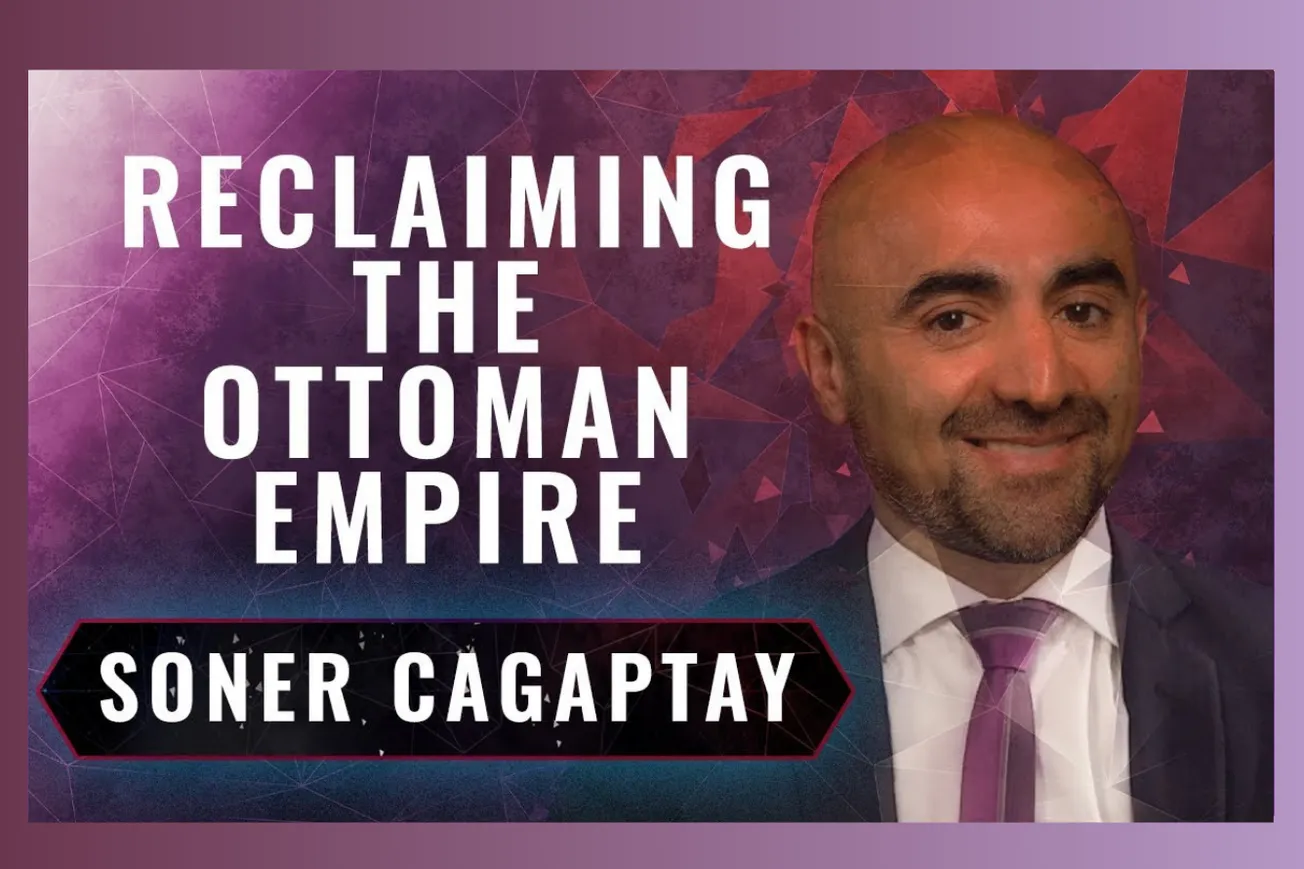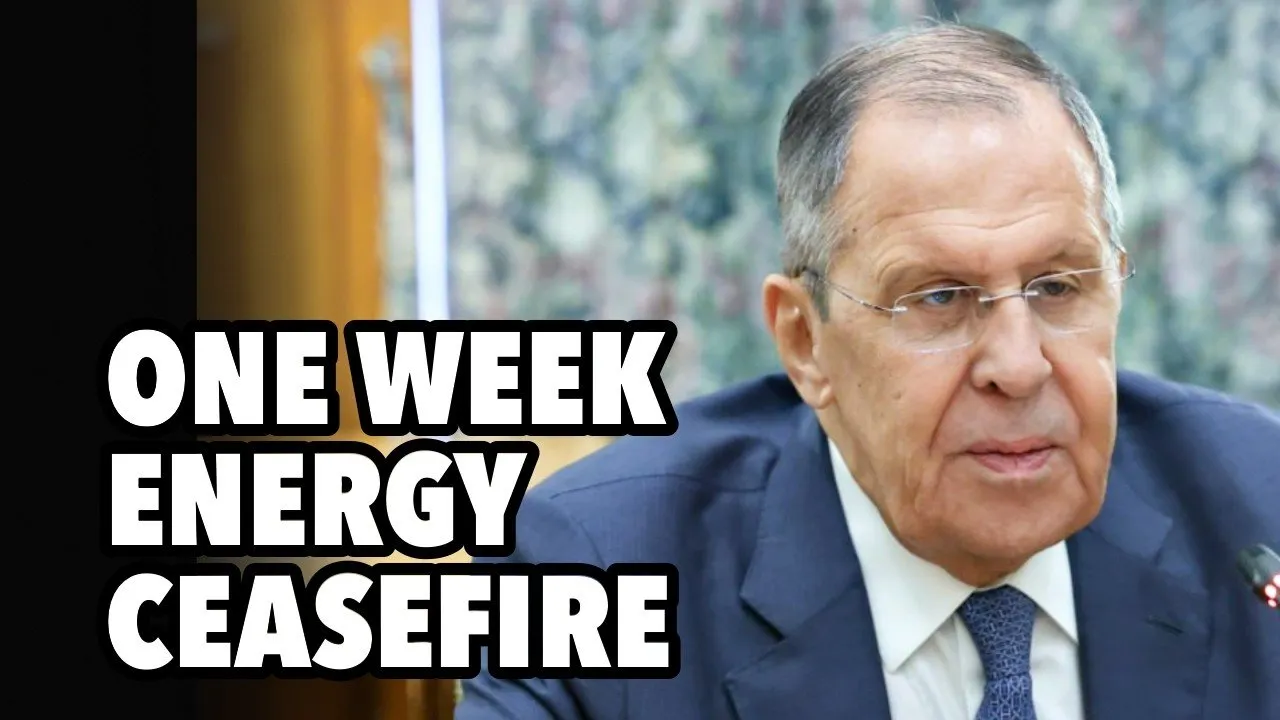Table of Contents
Soner Çağaptay reveals how Erdoğan's misunderstood Ottoman revivalism has transformed Turkey from a Western-oriented democracy into an isolated regional power.
Key Takeaways
- Erdoğan's Ottoman revivalism is based on a caricatured version of the empire taught by Kemalist education rather than historical reality
- Turkey's EU accession process was used instrumentally by Erdoğan to sideline the secular military, not to achieve genuine European integration
- The 2016 coup attempt fundamentally transformed Turkish-Russian relations, with Putin capitalizing on Western hesitation to court Erdoğan
- Turkey's bet on the Muslim Brotherhood across the Arab world left it isolated when those movements failed, creating regional enemies
- The Eastern Mediterranean crisis reflects Turkey's perception of being "boxed in" by a Greece-Cyprus-Egypt-Israel axis
- Turkey now has only Qatar as a reliable ally in the Middle East, representing a dramatic foreign policy failure
- Erdoğan represents both continuity and rupture with Atatürk: using similar methods but opposite values to reshape Turkish society
- The Turkish military historically served as guardian of secular Kemalist values, making it Erdoğan's primary domestic threat until neutralized
- Geographic insecurity drives Turkish foreign policy, with borders touching Iran, Iraq, Syria, and Russia creating multiple security challenges
Timeline Overview
- 00:00–15:30 — Scholar's Background and Ottoman Context: Çağaptay's journey from Turkish historian to Washington policy analyst, emphasizing how nations with imperial pasts like Turkey, China, and the UK maintain "malleable and exaggerated" memories of their heyday
- 15:30–30:45 — Atatürk vs Erdoğan: The New Sultan: Analysis of how Erdoğan uses Atatürk's methods with opposite values, attempting to reshape Turkey in his image while facing democratic opposition that Atatürk never encountered as the nation's founder
- 30:45–45:20 — EU Accession as Strategic Deception: Detailed examination of how Erdoğan used European integration requirements to neutralize the secular military establishment while never intending genuine democratization or European membership
- 45:20–60:15 — Syrian Conflict and Kurdish Complications: Discussion of how divergent US-Turkish priorities in Syria created lasting tensions, with Obama's decision to arm Kurdish YPG forces creating fundamental policy contradictions
- 60:15–75:30 — The 2016 Coup and Russian Pivot: Analysis of how the failed coup attempt transformed Turkish-Russian relations when Putin proved more reliable than Western allies, meeting at Catherine the Great's palace to symbolically end centuries of Russian-Turkish conflict
- 75:30–90:45 — Middle East Isolation Through Muslim Brotherhood Gambit: Explanation of how Erdoğan's decision to support Islamist movements exclusively created enemies across the Arab world when secular forces prevailed in Egypt and elsewhere
- 90:45–105:00 — Eastern Mediterranean Crisis and Regional Boxing: Discussion of natural gas disputes, continental shelf disagreements, and Turkey's perception of encirclement by a Greece-Cyprus-Egypt-Israel axis seeking to exclude Turkish interests
The Caricatured Ottoman Dream: Erdoğan's Imagined Empire
- Erdoğan's Ottoman revivalism represents not historical accuracy but rather "a caricaturized version of the Ottomans that Atatürk's revolution taught to generations of Turks," including Erdoğan himself who attended Kemalist schools
- The historical Ottoman Empire of the 19th century was actually a "westernizing state" where "sultans had established institutions of secular western education" that produced leaders like Atatürk, contradicting the religious caricature
- Atatürk's revolutionary justification required portraying the Ottoman system as "the Turkish version of a backward, religion-obsessed state" to legitimize his secular reforms and European orientation
- Erdoğan "wrongly thinks that the Ottomans were parochial, short-sighted, and all about Islam all the time" because this is how Kemalist education portrayed them, not how they actually governed
- The appeal of Ottoman revivalism stems from temporal proximity: "by Roman measurement of time called 'secular,' the Turkish Republic established in 1923 is not even one secular old," meaning many Turks have grandparents who served the Ottoman Empire
- Nations that were former great powers like "Turkey, China, Iran, and the UK" maintain memories that create "propensity to be inspired by leaders who can speak to this narrative and embody it"
This analysis reveals how educational narratives can create political realities generations later, with revolutionary mythology becoming the foundation for counter-revolutionary movements.
Atatürk's Methods, Erdoğan's Values: The Anti-Kemalist Revolution
- Erdoğan represents "the new Atatürk" not in values but in methodology, using "state powers, educational policy, and sheer personality to shape Turkey in his own image" just as the republic's founder did
- The fundamental difference lies in vision: Atatürk "envisioned Turkey to be a secular, Europe-facing, western society" while Erdoğan wants Turkey "facing the Middle East, politically Islamist, and socially conservative"
- Erdoğan faces structural challenges Atatürk never encountered: "Atatürk was not a democratically elected leader" but "Turkey's liberator" with "immense gravitas," while Erdoğan "is democratically elected and faces fierce democratic opposition"
- The educational divide creates additional obstacles: "during the early 20th century, educated Turks supported Atatürk's agenda" but "today educated Turks oppose Erdoğan's agenda" with "an inverse relationship between education and Erdoğan support"
- The Atatürk model of social transformation "just doesn't work in the 21st century environment" because "the fact that a leader could shape a country in his own image" is no longer viable in democratic contexts
- Turkey's military served as "the grand arbiter of Turkish politics" throughout the 20th century, maintaining Atatürk's secular legacy and "always considered itself the guardian" of Kemalist values against Islamist political movements
This comparison illuminates the fundamental tension between revolutionary transformation in authoritarian versus democratic contexts, showing why Erdoğan's project faces inherent limitations.
EU Accession as Strategic Instrumentalism
- The European Union accession process served Erdoğan's domestic political needs rather than representing genuine commitment to European integration, providing a "window of opportunity" to neutralize military opposition
- EU requirements in 2004 demanded that "if Turkey wanted to get into the EU, it had to take the military out of politics," which Erdoğan "happily obliged" because eliminating military interference served his interests perfectly
- Popular support for EU membership reached "80 percent of Turkey's citizens" during this period, giving Erdoğan democratic legitimacy for military reforms that actually consolidated his personal power
- Once military neutralization was complete, "Erdoğan dropped the EU accession like a hot potato" because "he was never interested in making Turkey a consolidated liberal democracy"
- European powers, particularly "France and Germany, dropped Turkey's accession like a hot potato" because Turkey's demographic size would make it "a third large power inside the EU, equaling Germany and France"
- The EU created "obstacles and loopholes which made it impossible for Turkey to join the union in the foreseeable future," with implementation of EU legislation requiring "200,000 pages" of legal harmonization
- Cyprus's EU membership in 2004 provided the perfect excuse for European countries wanting to offer Turkey "special membership but not full membership" while maintaining technical compliance with accession promises
This reveals how both sides used the accession process instrumentally, with Erdoğan achieving domestic objectives while Europe avoided unwanted expansion without explicitly rejecting Turkey.
The Syrian Contradiction: Kurds, ISIS, and Allied Tensions
- US-Turkish cooperation in Syria initially aligned around supporting rebels against Assad, but "objectives diverged after ISIS emerged" when Obama prioritized defeating ISIS without deploying American ground forces
- Obama's decision to ally with Kurdish YPG forces created fundamental contradictions: "working with one terrorist group to undermine another terrorist group" since YPG represents "a Syrian branch of PKK, Kurdistan Workers Party"
- Turkey accepted this policy temporarily because "it helps you defeat ISIS" but expected American withdrawal from Kurdish cooperation once ISIS was defeated, which never materialized
- The Kurdish issue reflects deeper Turkish security concerns about territorial integrity, with PKK designated as a terrorist organization "not only by Turkey but also by US and all NATO members"
- American military leaders who were previously "Turkey's greatest fan in Washington" became "Turkey's perhaps greatest opponent" due to disagreements over Syrian tactics and Kurdish partnership
- Erdoğan's commitment to removing Assad led him to "turn a blind eye to radicals who crossed into Syria to fight," creating US military concerns when some fighters "joined ISIS"
- Both sides developed "equally disliked tactics" with Washington upset about Turkish facilitation of radical infiltration and Ankara frustrated by American partnership with what it considered terrorist proxies
These contradictions demonstrate how counter-terrorism priorities can create alliance tensions when different countries face distinct security threats from the same organizations.
The 2016 Coup and the Russian Pivot
- The failed coup attempt represented "a coup plot, not a coup" because it involved "part of the military attacking the rest of the military and Erdoğan" rather than unified military action
- Western allies' hesitation to immediately support Erdoğan after the coup attempt created a crucial opening that "Putin took advantage of" by being "the first leader to call Erdoğan after the coup"
- Putin's invitation to meet "not in the Russian capital Moscow but in Saint Petersburg at the Constantinoski Palace built by Catherine the Great" carried profound historical symbolism
- Catherine the Great represents "the first Russian tsar who defeated the Turks," making Putin's message clear: "my country has a tradition of bullying your country, started by Catherine the Great. Putin the Great will end it"
- The meeting fundamentally altered Turkish-Russian relations despite centuries of conflict: "the turks and Russians fought 17 major campaigns" with "all of them started by the Russians" and "all lost by the Turks"
- Putin's strategic calculation recognized that "the bigger prize was not Syria, it was Turkey" because bringing Erdoğan into the Russian sphere would transform regional power balance
- The first tangible result was Putin giving Erdoğan "green light to go into Syria to undermine Kurdish YPG," directly addressing Turkey's primary security concern
This episode demonstrates how great power competition operates through opportunistic relationship building during moments of alliance vulnerability.
Middle East Isolation Through Islamic Miscalculation
- Erdoğan's regional strategy was "completely opportunistic" when he decided to support political Islamic movements during the Arab Spring, seeing them as vehicles for Turkish influence expansion
- The Muslim Brotherhood bet represented dangerous over-concentration: "it's like betting in a horse race - if you put all your money behind one horse, if that horse wins you win really big, but if the horse loses you lose everything"
- Turkey's economic success created a "can-do attitude" that made Erdoğan's imperial ambitions seem feasible when "the economy had almost doubled in size" and living standards approached Spanish levels
- Egypt's rejection of Turkish influence reflected deeper Arab nationalism: "it doesn't matter who's in charge in Cairo, Egyptians see themselves as the dominant nation in the Arab world" and "were not going to let Turkey come and push them around"
- General Sisi's ouster of the Muslim Brotherhood created a perfect antagonism: "Erdoğan is the political Islamist who isolated and locked up secularist generals" while "Sisi is a secularist general who locked up political Islamists"
- Regional isolation became comprehensive with Turkey "at odds with Syria because it's supporting rebels, at odds with Iran which backs Assad, at odds with UAE and Saudi Arabia who oppose the Brotherhood"
- The ultimate result: Turkey "has only one friend which is Qatar and maybe the government of Tripoli, half of Libya" representing complete failure of the regional influence project
This case study illustrates how ideological foreign policy can create systematic isolation when regional dynamics don't align with ideological preferences.
Eastern Mediterranean Crisis: The Boxing-In Strategy
- Turkey's perception of regional encirclement drives Eastern Mediterranean policy, with Erdoğan believing "Turkey is being boxed in by an axis that stretches from Tel Aviv to Athens, crosses through Cyprus"
- The natural gas dimension adds economic stakes to geopolitical competition, with Turkey challenging continental shelf arrangements that would exclude it from resource exploitation
- Turkey's intervention in Libya's civil war represents an attempt to "cut the east-west axis with a south-north axis" by creating "shared maritime zone between Turkey and Libya"
- Regional alignment against Turkey includes "Greece, Cyprus, Egypt, and Israel" forming "new initiatives, security-related, natural gas related, and always excluding Turkey"
- The crisis extends beyond regional players with France deploying "battleships and planes" to support the anti-Turkish coalition, demonstrating how local conflicts attract great power involvement
- Putin's Libya strategy exemplifies his "crafty" approach: "first he's the arsonist, he creates a fire, and now he's the firefighter" by deploying Wagner forces then offering to mediate
- Turkey's relationship with Russia in Libya mirrors the Syrian dynamic: "turkey has to deal with Russia in Libya as it does in Syria" creating complex cooperation-competition patterns
This analysis shows how resource competition can escalate into broader geopolitical confrontation when combined with existing alliance tensions and great power rivalry.
Looking Forward: The Limits of Ottoman Revival
Soner Çağaptay's analysis reveals how Erdoğan's Ottoman revivalism represents a fundamental misunderstanding of both historical realities and contemporary geopolitical constraints. His attempt to transform Turkey from a Western-oriented democracy into a regional Islamic power has achieved the opposite of its intended goals, creating isolation rather than influence.
Future Turkish Geopolitics Predictions
- Continued regional isolation will persist as Turkey's ideological foreign policy conflicts with Arab nationalism and sectarian divisions, limiting partnership opportunities to fellow outsiders like Qatar
- Russian dependency deepening will occur as Turkey finds itself increasingly reliant on Moscow for strategic support, despite historical animosity and conflicting interests in multiple theaters
- Democratic erosion acceleration will continue as Erdoğan's imperial project requires ever-greater centralization to overcome domestic opposition from educated urban populations
- Economic vulnerability exploitation will provide opportunities for external powers to influence Turkish policy through financial pressure, particularly given the country's overleveraged banking system
- NATO relationship deterioration will persist as Turkey's alignment with Russia and conflicts with European allies create fundamental incompatibilities with Western alliance structures
- Kurdish issue intensification will remain central to Turkish security policy, driving interventions in Syria and Iraq while complicating relationships with the United States and European partners
- Generational political change may eventually challenge Erdoğan's model as younger, more educated Turks reject both Ottoman nostalgia and authoritarian governance in favor of genuine democratization





